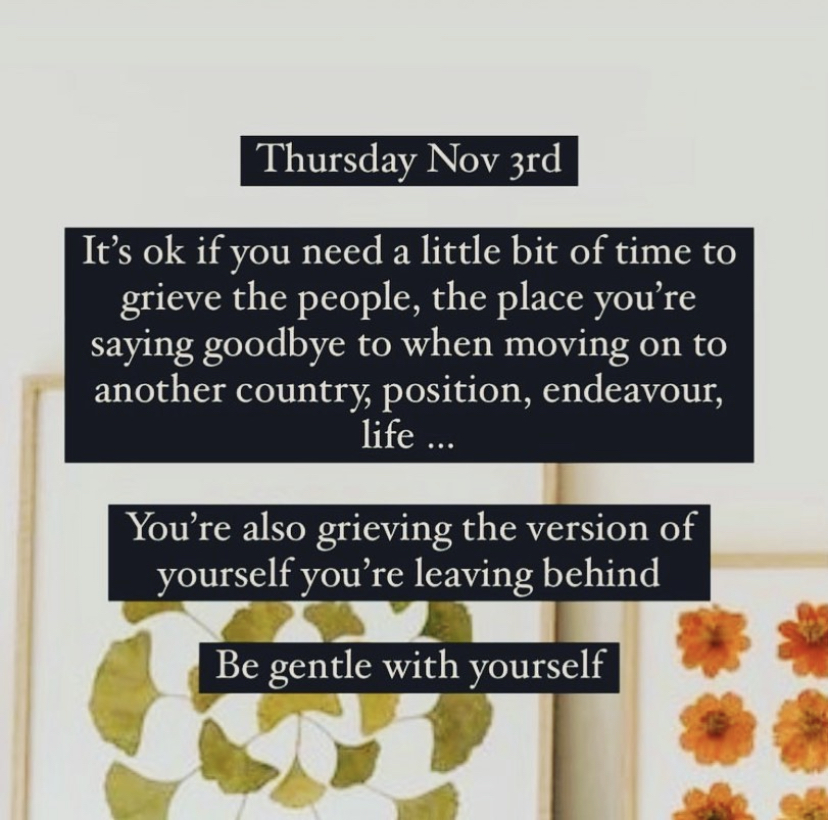the blog
UNCHASING CHAOS: IDEAS TO REDIRECTION
January 7, 2023
The Leaving Loss
The unspoken grief experience of leaving humanitarians
By Laura Callot
Humanitarian workers will experience all sorts of grief. Including for disregarded yet very valid reasons.
As anticipated, humanitarians often experience sorrow at work. Colleagues may grieve life taken away by conflict, lack of services, violence. Some colleagues will pass away. People on the other side of humanitarian assistance will pass away too. War, disease, displacement, discrimination, hunger, pain … Loss is, expectedly, all around aid workers.
But one type of heartache never spoken about is the loss humanitarians experience when they leave an assignment. For many, such decision is the result of a long acceptance process, materialised through shorter and shorter periods of contract extension. Almost as a way to conquer the denial attached to the inevitable event: departure.
3 months, 2 months, 1 months, 0. The date is set. They will be leaving soon.
Leaving rituals
For many, their decision to move on amounts to top level intel for weeks. Only closest friends are aware: they monitored the renewal series episodes and offered “how long should you renew for” advice.
The announcement is usually carefully orchestrated: manager and HR first, own team, larger group – preferably on during the Sunday Morning Meeting, soon enough after the team disclosure to avoid longing rumours. The news kicks off the goodbye ceremonial – secretly arranged – consisting of:
- Visiting all the offices and country programme locations – especially those which they have not been able to go yet ;
- Eating a lot of cake that comes into all shapes and colours – sometime with one’s own picture used for the icing – pushed down with sugary soda with everyone they ever worked with ;
- Listening to speeches of proud managers, faithful colleagues, new best friends, and whoever wants to share a memory, remember an act of kindness, a dance party, or who bounded over hardship with them.
Only people who have lived through this experience will understand the necessity of following these steps. A rite of passage, softly taking everyone to the finish line. It was so much more than an “assignment” anyway, was not it?

The last weeks are lived fully, the pilgrimage has started: revisiting all the key spots before leaving. The local shopping street (safety advisor exceptionally allowed them and a curated group of privileged to go), their favorite restaurant to eat the food they will try to find back home (which will never taste the same). NGO’s compounds, the swimming pool or football pitch, the waterfalls or the mountain top nearby. All the while still working very hard despite fading responsibilities. Leaving humanitarians no longer are the “go to person” in their field of expertise. Is this a coincidence?
Let’s understand that when moving on, humanitarians leave a team, a role, colleagues who became friends, a place, a room they have turned into a home, their own world and space. And they are grieving this too. For each arrival slowly turns strangers into friends, hostile into home, foreign into familiar, each departure requires time to detangle themselves from humans, spaces, and actions which centred them for the past months, sometimes years.
The grief of self
However, the most unexpected aspect of sadness leaving humanitarians experience might be grieving a part of themselves each time they move on. For as they part with a country, a team, a role, a period in their life, it is also a version of themselves they leave behind. The piece they played, the knowledge and expertise they were recognised for, their reflection in others’ eyes, their very own self-image.
When they are closing their suitcase, exiting their favorite driver’s car for the last time, boarding that train or plane, they are leaving a piece of themselves behind too. For better or worse, these two are parting ways.
So, humanitarians, it’s ok if you need time. Managers, HR, colleagues: it a moment you can help protect with understanding. Family and loved ones: this is an opportunity to offer space and time for them to reassemble as one. One who will soon redo it all over again.
Leave a Reply Cancel reply
Humanitarian worker, mentor and entrepreneur, I am passionate about people, justice, and progressive working-culture where every person thrive and realise their full potential.
I am known for guiding aid workers through a unique method of mentorship which articulates professional development, personal growth, and systemic change in a deeply transformational experience. I focus on intimate group work, thinking out of the imposed-mentality, and daring greatly.